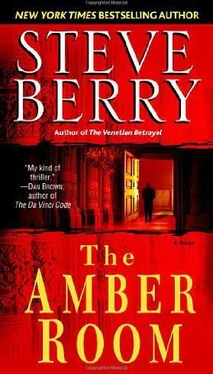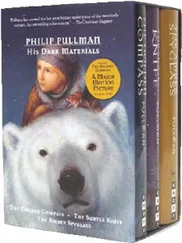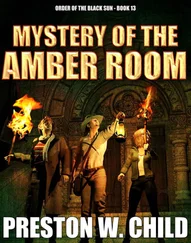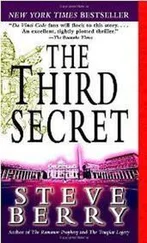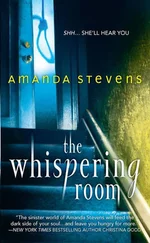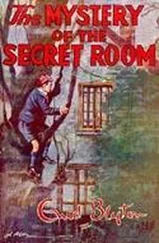"I'll make a point to see them before I leave."
He noticed the huge wall clock. 10:15 A.M. "Sorry I'm late. Why don't we wander around and you can ask your questions."
The man smiled and withdrew a microrecorder from the shoulder bag. They strolled across the expansive gallery.
"I'll just get right into it. How long have you been on the museum's board?" the reporter asked.
"Nine years now."
"You a collector?"
He grinned. "Hardly. Only some small oils and a few watercolors. Nothing substantial."
"I've been told your talents lie in organization. The administration speaks highly of you."
"I love my volunteer work. This place is special to me."
A noisy group of teenagers poured in from the mezzanine.
"Were you educated in the arts?"
He shook his head. "Not really. I earned a BA from Emory in political science and took a few graduate courses in art history. Then I found out what art historians make and went to law school." He left out the part about not getting accepted on the first try. Not from vanity--it was just that after thirteen years it really didn't matter any longer.
They skirted the edge of two women admiring a canvas of St. Mary Magdalene.
"How old are you?" the reporter asked.
"Forty-one."
"Married?"
"Divorced."
"Me, too. How you handling it?"
He shrugged. No need to make any comment on the record about that. "I get by."
Actually, divorce meant a sparse two-bedroom apartment and dinners eaten either alone or with business associates, except the two nights a week he ate with the kids. Socializing was confined to State Bar functions, which was the only reason he served on so many committees, something to occupy his spare time and the alternate weekends he didn't have the kids. Rachel was good about visitation. Any time, really. But he didn't want to interfere with her relationship with the children, and he understood the value of a schedule and the need for consistency.
"How about you describe yourself for me."
"Excuse me?"
"It's something I ask all the people I profile. They can do it far better than I could. Who better to know you than you?"
"When the administrator asked me to do this interview and show you around, I thought the piece was on the museum, not me."
"It is. For next Sunday's Constitution magazine section. But my editor wants some side boxes on key people. The personalities behind the exhibits."
"What about the curators?"
"The administrator says you're one of the real central figures around here. Somebody he can really count on."
He stopped. How could he describe himself? Five foot ten, brown hair, hazel eyes? The physique of somebody who runs three miles a day? No. "How about plain face on a plain body with a plain personality. Dependable. The kind of guy you'd want to be in a foxhole with."
"The kind of guy who makes sure your estate gets handled right after you're gone?"
He'd not said anything about being a probate lawyer. Obviously, the reporter had done some homework. "Something like that."
"You mentioned foxholes. Ever been in the military?"
"I came along after the draft. Post-Vietnam and all that."
"How long have you practiced law?"
"Since you know I'm a probate lawyer, I assume you also know how long I've practiced."
"Actually, I forgot to ask."
An honest answer. Fair enough. "I've been at Pridgen and Woodworth thirteen years now."
"Your partners speak highly of you. I talked to them Friday."
He raised an eyebrow in puzzlement. "Nobody mentioned anything about that."
"I asked them not to. At least until after today. I wanted our talk to be spontaneous."
More patrons filed in. The chamber was getting crowded and noisy. "Why don't we walk into the Edwards Gallery. Less folks. We have some excellent sculptures on display." He led the way across the mezzanine. Sunlight poured past the walkways through tall sheets of thick glass laced into a white porcelain edifice. A towering jewel-toned ink drawing graced the far north wall. The aroma of coffee and almonds drifted from an open cafe.
"Magnificent," the reporter said, looking around. "What did the New York Times call it? The best museum a city's built in a generation?"
"We were pleased with their enthusiasm. It helped stock the galleries. Donors immediately felt comfortable with us."
Ahead stood a polished red-granite monolith in the center of the atrium. He instinctively moved toward it, never passing without stopping for a moment. The reporter followed. A list of twenty-nine names was etched into stone. His eyes always gravitated to the center:
YANCY CUTLER
JUNE 4, 1936-OCTOBER 23, 1998
DEDICATED LAWYER
PATRON OF THE ARTS
FRIEND OF THE MUSEUM
MARLENE CUTLER
MAY 14, 1938-OCTOBER 23, 1998
DEVOTED WIFE
PATRON OF THE ARTS
FRIEND OF THE MUSEUM
"Your father was on the board, wasn't he?" the reporter asked.
"He served thirty years. Helped raise the money for this building. My mother was active, too."
He stood silent. Reverent, as always. It was the only memorial of his parents that existed. The airbus exploded far out to sea. Twenty-nine people dead. The entire museum board of directors, spouses, and several employees. No bodies found. No explanation for the cause other than a curt conclusion by Italian authorities that separatist terrorists had been responsible. The Italian Minister of Antiquities, on board, had been presumed the target. Yancy and Marlene Cutler were simply in the wrong place at the wrong time.
"They were good people," he said. "We all miss them."
He turned, leading the reporter into the Edwards Gallery. An assistant curator raced across the atrium.
"Mr. Cutler, please wait." The woman hurried over, a look of concern on her face. "A call just came for you. I'm sorry. Your ex-father-in-law has died."
SEVENTEEN
Atlanta, Georgia
Tuesday, May 13
Karol Borya was buried at 11 a.m., the midspring morning cloudy and overcast with a lingering chill, unusual for May. The funeral was well attended. Paul officiated, introducing three of Borya's longtime friends who delivered moving eulogies. He then said a few words of his own.
Rachel stood in front, with Marla and Brent at her side. The mitered priest at St. Methodius Orthodox Church presided, Karol having been a regular parishioner. The ceremony was unhurried, tearful, and enhanced by a choir performance of Tchaikovsky and Rachmaninov. Interment was in the Orthodox cemetery adjacent to the church, a rolling patch of red clay and Bermuda grass shaded by mushrooming sycamore trees. As the coffin was lowered into the ground, the priest's final words rang true, "From dust you come, to dust you go."
Though Borya fully adopted American culture, he'd always retained a religious connection with his homeland, strictly adhering to Orthodox doctrine. Paul didn't remember his ex-father-in-law as an overly devout man, just one who solemnly believed and transferred that belief into a good life. The old man had mentioned many times that he'd liked to be buried in Belarus, among the birch groves, marshlands, and sloping fields of blue flax. His parents, brothers, and sisters lay in mass graves, the exact locations dying with the SS officers and German soldiers who slaughtered them. Paul thought about talking with somebody at the State Department on the possibility of a foreign burial, but Rachel vetoed the idea, saying she wanted her father and mother nearby. Rachel also insisted the postfuneral gathering occur at her house, and about seventy-some people wandered in and out over two hours. Neighbors supplied food and drinks. She politely talked to everyone, accepted condolences, and expressed thanks.
Читать дальше
